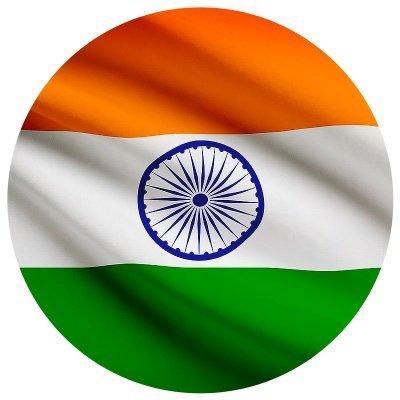In a significant development reshaping the geopolitical landscape of Asia, India, Russia, and China have reportedly forged a new Triple Entente, according to recent GIS Reports. This emerging alliance signals a strategic pivot among three of the region’s most influential powers, promising to alter existing diplomatic dynamics and challenge prevailing international power structures. As geopolitical tensions continue to mount globally, the formation of this trilateral partnership underscores a concerted effort to foster cooperation on economic, military, and strategic fronts, raising critical questions about the future balance of power in the 21st century.
Emerging Dynamics of the New Triple Entente Among India Russia and China
Recent geopolitical shifts have paved the way for a strategic alignment among India, Russia, and China, cultivating a complex yet pragmatic partnership that challenges existing global power structures. This triad’s collaboration is increasingly marked by multifaceted cooperation beyond traditional diplomacy, encompassing economic, military, and technological arenas. While historical rivalries and ideological differences persist, a shared interest in counterbalancing Western dominance and enhancing regional stability has forged a new paradigm of interaction. The partnership’s uniqueness lies in its fluidity-balancing rivalry and cooperation simultaneously-making it a nuanced force on the global chessboard.
Key drivers of this emerging alliance include:
- Energy security: Russia’s vast resources complement India and China’s growing energy demands, fostering mutually beneficial trade agreements.
- Military-technical collaboration: Joint development and exchange of defense technology signal deepening trust and strategic foresight.
- Infrastructure and connectivity: Initiatives such as the International North-South Transport Corridor (INSTC) highlight integrated logistics networks advancing regional connectivity.
- Multilateral diplomacy: Coordinated stances in forums like BRICS and the Shanghai Cooperation Organisation (SCO) amplify collective bargaining power.
| Aspect | India | Russia | China |
|---|---|---|---|
| Primary Interest | Economic growth & Security | Geopolitical influence & Trade | Regional dominance & Innovation |
| Military Strength | Expanding modernization | Legacy power & Upgrades | Rapid tech advancement |
| Strategic Concerns | Border protection & Alliances | Sanctions & Partnerships | Maritime routes & US relations |
Strategic Implications for Regional Security and Global Power Balance
The emergence of a trilateral partnership involving India, Russia, and China heralds a significant recalibration in the architecture of international relations. This alliance not only challenges the established frameworks dominated by Western powers but also signals a strategic diversification that could redefine global alliances. The collaboration hints at a shared vision among these nations to counterbalance the influence of the United States and NATO, especially in contested regions like Central Asia and the Indo-Pacific. The collective military capabilities and economic heft of this trio create a formidable bloc, potentially accelerating shifts in diplomatic allegiances and defense postures across the Eurasian landmass.
Key strategic dimensions to monitor include:
- Military cooperation: Joint exercises and intelligence sharing suggest deepening defense ties.
- Economic integration: Enhanced trade corridors and energy partnerships bolster mutual dependencies.
- Technological collaboration: Coordinated advancements in cyber and space domains raise the stakes for global competition.
- Diplomatic initiatives: Unified stances in multilateral forums amplify their geopolitical voice.
| Aspect | Potential Impact | Global Reaction |
|---|---|---|
| Defense Alignment | Enhanced regional deterrence | Cautious recalibration by NATO |
| Economic Partnerships | Increased intra-continental trade | Shift in global supply chains |
| Technological Collaboration | Accelerated innovation hubs | Heightened competition in AI and 5G |
| Diplomatic Unity | Stronger negotiating positions | Realignment of international blocs |
Policy Recommendations for Navigating the India Russia China Alliance in Geopolitical Affairs
To effectively engage with the emerging geopolitical bloc formed by India, Russia, and China, policymakers must prioritize multilateral diplomacy over bilateral engagements, ensuring that no single alliance member feels marginalized. Emphasis should be placed on developing flexible frameworks that accommodate the distinct strategic interests of each nation while fostering trust through consistent communication channels. Additionally, investment in strategic economic partnerships, particularly in infrastructure and technology sectors, can serve as a bridge, mitigating political volatility and reinforcing mutual dependencies.
Strategically, governments should implement the following core measures:
- Enhanced intelligence sharing: Encourage joint analysis to preempt regional conflicts and anticipate shifts within the alliance’s agenda.
- Balanced defense postures: Avoid arms races by promoting transparency in military exercises and procurement among the trio.
- Economic diplomacy: Leverage trade agreements that provide equitable benefits to all parties, aligning with sustainable development goals.
- Conflict resolution mechanisms: Facilitate platforms for addressing bilateral disagreements within the alliance proactively.
| Policy Focus | Recommended Action | Expected Outcome | |
|---|---|---|---|
| Intelligence Sharing | Establish trilateral intelligence fusion cells | Early detection of security threats | |
| Economic Integration | Promote cross-border infrastructure projects | Boost regional trade volume by 20% | |
| Defense Transparency | Defense Transparency | Conduct joint military exercises with open invitations to observers | Reduce risk of misunderstandings and accidental conflicts |
| Conflict Resolution | Create a trilateral dispute mediation council | Timely resolution of bilateral tensions within the alliance |
Would you like me to assist with exporting this content, formatting it differently, or adding further recommendations?
Insights and Conclusions
As the geopolitical landscape continues to evolve, the emergence of a new Triple Entente between India, Russia, and China marks a significant development with far-reaching implications. This trilateral alignment signals a potential shift in global power dynamics, challenging established alliances and prompting strategic recalibrations worldwide. As these three influential nations deepen their cooperation, the international community will be closely watching how this partnership shapes the future of diplomacy, security, and economic collaboration in the years ahead.




